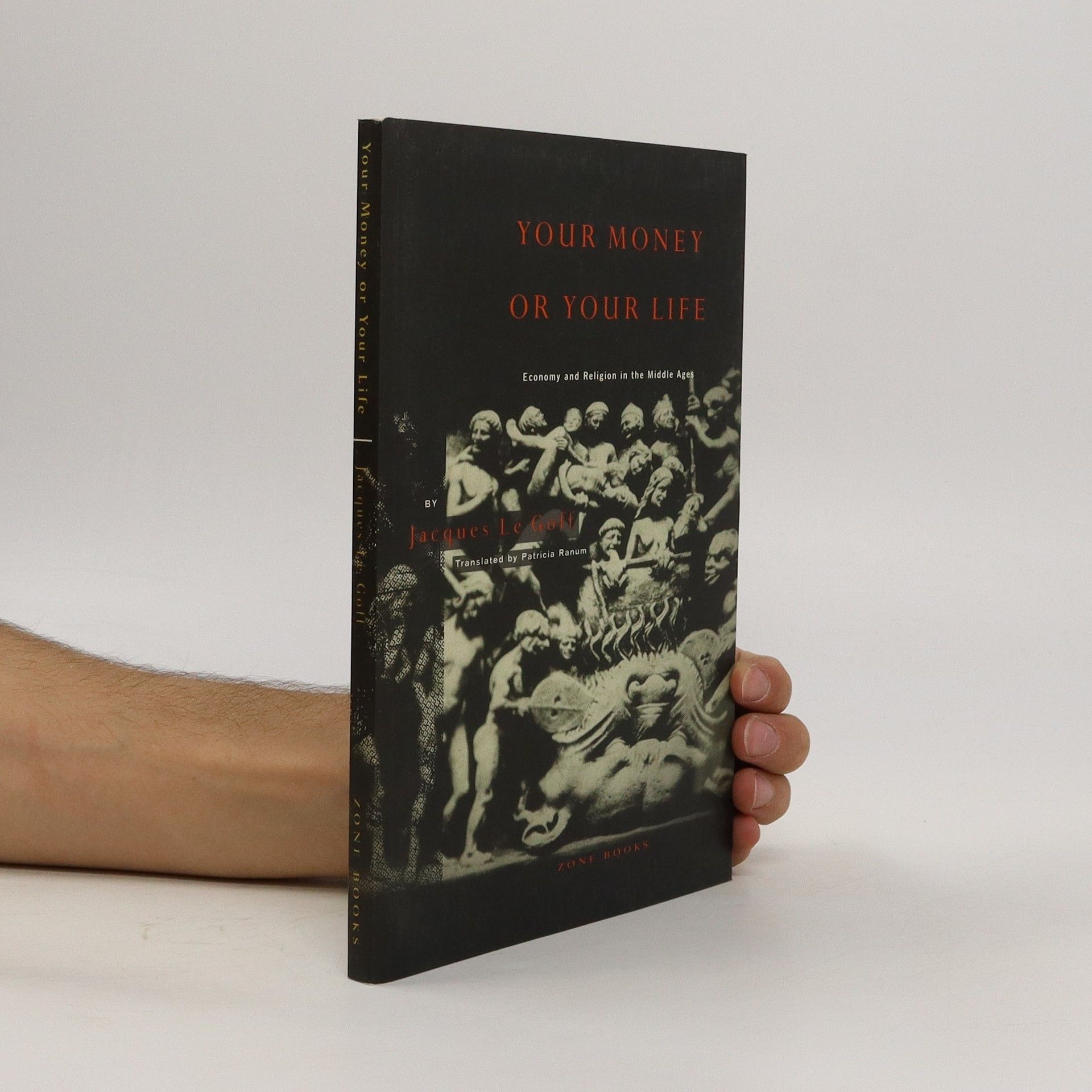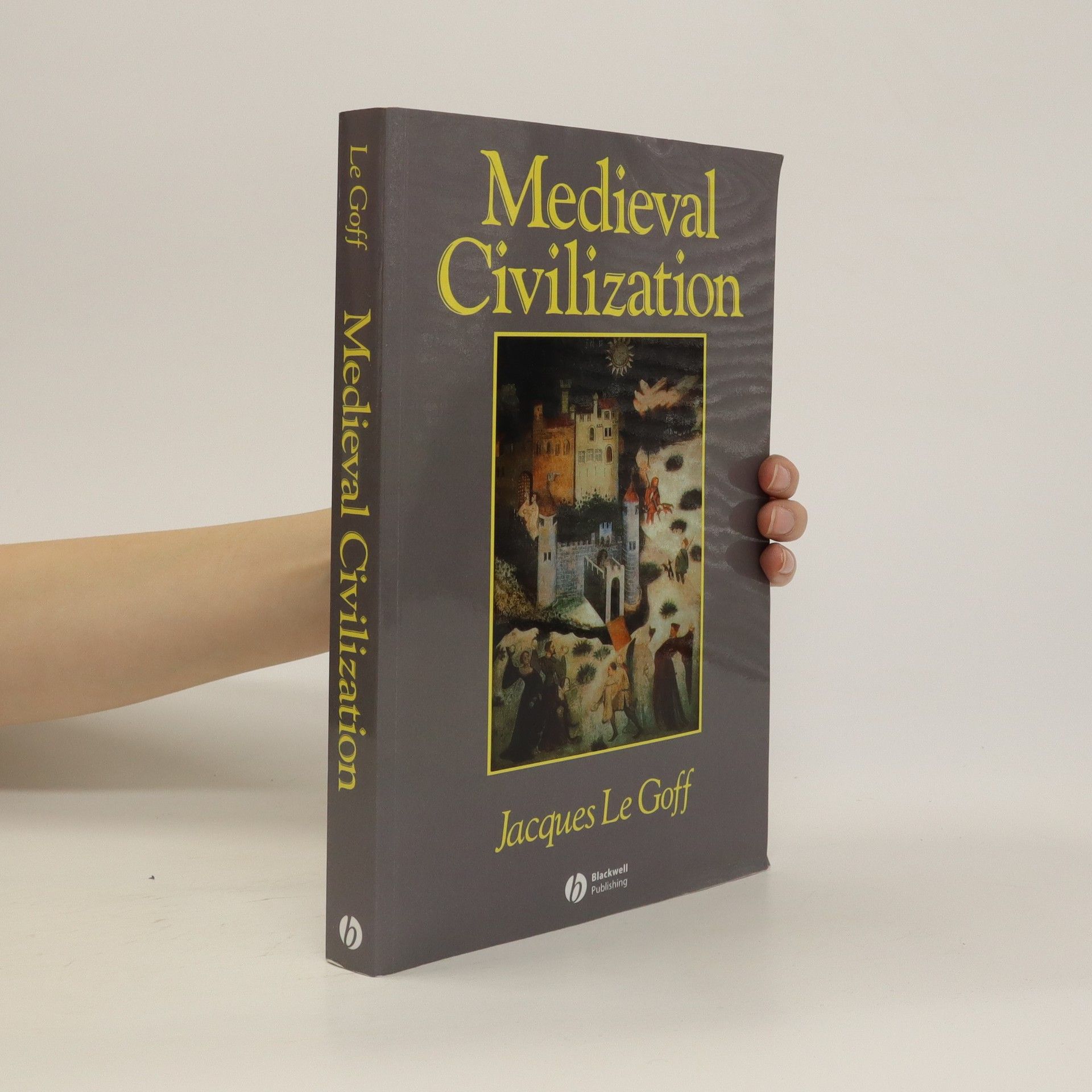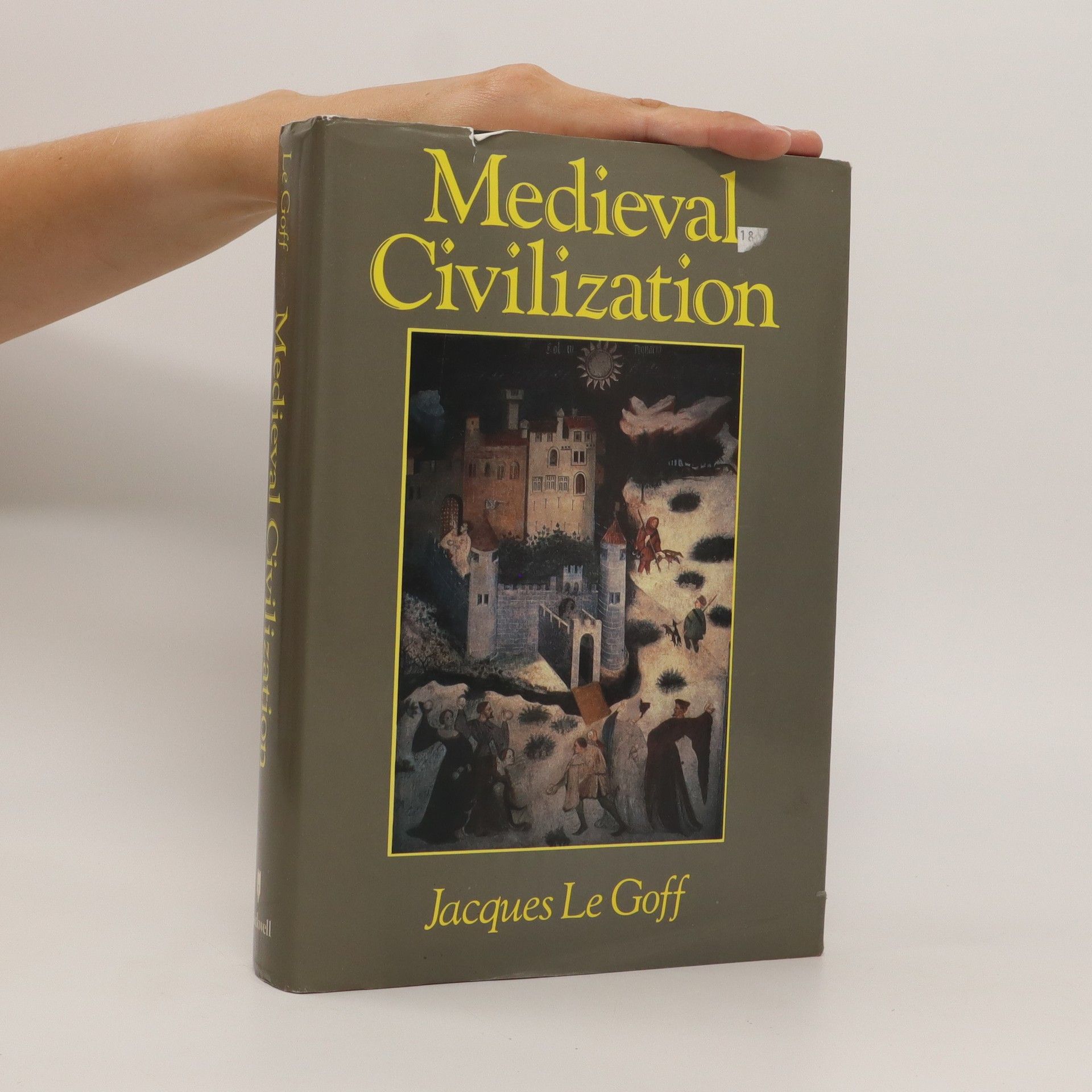Il cielo sceso in terra
Le radici medievali dell'Europa
A prolific medievalist of international renown, Le Goff is considered a principal heir and continuator of the Annales School. His work deeply engages with the historical anthropology of Western Europe during the medieval period. Le Goff notably contested the very term "Middle Ages" and its chronology, highlighting the achievements and internal variations of this era, particularly by drawing attention to the 12th-century Renaissance.







Le radici medievali dell'Europa
Tą dość wczesną (1957) książką Jacques Le Goff (1924–2014), francuski klasyk historii średniowiecza, wzbudził spore kontrowersje, zwłaszcza wśród historyków i filozofów chrześcijańskich. Dokonał tu – jak zwykle we frapujący sposób – opisu pewnej formacji społecznej, która narodziła się jego zdaniem w XII–XIII wieku wraz z rozwojem miast i podziału pracy. To intelektualiści, których trzeba wyraźnie odróżniać od szerszej kategorii inteligencji. Specyfiką tej jej podgrupy jest określony rodzaj pracy umysłowej: połączenie nauczania z badaniami, które dziś uznalibyśmy za naukowe, i z pracą nad metodyką nauczania. Naturalnym środowiskiem intelektualistów były korporacje uniwersyteckie, które zaczęły powstawać w XIII wieku. Rewolucyjna zmiana polegała na przeniesieniu życia umysłowego z klasztoru do miasta i na narodzinach nowej drogi do władzy – przez egzamin (edukację). Cały ów proces musiał powodować napięcia i konflikty, których dramatyczny przebieg ta opowieść o życiu średniowiecznych intelektualistów eksponuje od strony społecznej i personalnej – jak w przypadku tragicznego losu Abelarda. Jako myśliciele z natury rzeczy starali się oni wybić na niezależność, ale jako chrześcijanie podlegali zewnętrznym i wewnętrznym ograniczeniom: władzy kościelnej i własnych przekonań. Le Goff doprowadza swoją historię do czasów odrodzenia, gdy chrześcijańskiego intelektualistę zastąpił intelektualista o innej formacji: humanista.
To ostatnia, napisana na rok przed śmiercią książka Jacques’a Le Goffa (1924–2014), wybitnego francuskiego mediewisty z trzeciego pokolenia szkoły Annales, której programem było badanie historii życia codziennego i mentalności. Le Goff zapisał się w mediewistyce ideą „długiego średniowiecza”. Wbrew rozpowszechnionej opinii o odrębności włoskiego renesansu XV wieku uważał go za jeden spośród kilku średniowiecznych „renesansów”, a samo średniowiecze rozciągał do połowy XVIII wieku. Zdaniem Le Goffa dopiero wtedy doszło do radykalnych zmian kulturowych znamionujących nową epokę, nowożytność. W niniejszym eseju kwestia tej periodyzacji jest okazją do bardziej fundamentalnych rozważań nad sensem i potrzebą podziału na epoki jako takiego. Czy dziejowe cezury są faktycznie na tyle głębokie, że wymagają nieciągłej wizji historii, czemu przecież ewidentnie przeczy codzienne doświadczenie? Autor frapująco wykazuje ciągłość procesów „długiego średniowiecza”, obalając utrwalone schematy w nauczaniu historii: ani średniowiecze nie było tak „ciemne”, jak się przyjmuje, ani odrodzenie tak „racjonalne” i „humanistyczne”. Jeśli do tych korekt historiografa dodać narastającą globalizację, która wydaje się unieważniać wszelkie partykularyzmy, można dojść do wniosku, że periodyzacja jest anachronizmem, a światem włada niepodzielna ciągłość. Lektura tego eseju pokaże, że odpowiedź autora jest znacznie bardziej subtelna.
Francuski mediewista Jacques Le Goff (19242014), jeden z najwybitniejszych i najbardziej znanych w świecie, w swoich dziełach badał średniowieczną mentalność i rozmaite dziedziny życia powszedniego, gospodarczego i religijnego (Wydawnictwo Aletheia: Historia ciała w średniowieczu, Warszawa 2018; Narodziny czyśćca, Warszawa 2021). W niniejszej książce zawarł podsumowanie swoich podjętych jeszcze w młodości badań nad obecnością pieniędzy w życiu średniowiecznego społeczeństwa, nad ich znaczeniem dla gospodarki oraz ówczesnym statusem etycznym. Rekonstruuje właściwą wówczas dla chrześcijanina z punktu widzenia Kościoła postawę wobec pozyskiwania pieniądza drogą lichwy, działalności kupieckiej czy bankowej. Rozważa też ogólniejszą kwestię, czy istniał w tej epoce pieniądz w naszym dzisiejszym sensie i czy można upatrywać w niej początków kapitalizmu. Ten znakomity przewodnik po średniowiecznych finansach opowiada zarazem o losach ludzi związanych z tą dziedziną, o mennicach, kopalniach kruszcu, lichwie, pierwszych bankach i handlu dalekomorskim, co stanowi walor sam w sobie tej książki, nawet jeśli wynik badania okazuje się negatywny: nie ma w średniowieczu myśli ekonomicznej, a gospodarka z braku globalnych rynków występuje jeszcze w formie prekapitalistycznej.
How The Golden Legend shaped the medieval imagination It is impossible to understand the Middle Ages without grasping the importance of The Golden Legend, the most popular medieval collection of saints' lives. Assembled in the thirteenth century by Genoese archbishop Jacobus de Voragine, the book became the medieval equivalent of a bestseller. In Search of Sacred Time is the first comprehensive history and interpretation of this crucial book. Jacques Le Goff, who was one of the world's most renowned medievalists, provides a lucid and compelling account that shows how The Golden Legend Christianized time itself, reconciling human and divine temporality. Authoritative, eloquent, and original, In Search of Sacred Time is a major reinterpretation of a book that is central to comprehending the medieval imagination.
Augustin, Jeanne d'Arc, Richard Löwenherz oder Dante: Wer waren sie? Was wissen wir über sie? Welche Ereignisse haben ihr Schicksal geprägt? Jacques Le Goff und ein Team ausgewiesener Experten stellen die Schlüsselfiguren des Mittelalters in Einzelporträts vor. Zeitgenössische Abbildungen begleiten die leicht zugängliche Einführung in das magische Zeitalter der Kathedralen. Mehr als 100 Porträts wichtiger Persönlichkeiten des 4. bis 15. Jhs. fügen sich zu einem überzeugenden Gesamtbild dieser eminent schöpferischen Zeit. Vorgestellt werden Herrscher und Päpste, Theologen und Ketzer, Schriftsteller und Entdecker. Besonderes Augenmerk gilt den Frauen, die mit Katharina von Siena oder Hildegard von Bingen vertreten sind. Der Band schließt mit vertrauten mythischen und literarischen Figuren wie König Arthur, Robin Hood oder Melusine. Sie alle zeugen von einer Epoche, die uns hier mit ausgewählten Höhepunkten der Kunstgeschichte in neuem Licht begegnet
Jacques Le Goff, der international berühmteste Mittelalter-Experte, kehrt am Ende seines Lebens zu den grundlegenden Fragen seiner Zunft zurück. Warum teilen wir Geschichte überhaupt in Epochen ein? Ist die Renaissance für uns moderne Menschen tatsächlich die Geburtsstunde für das helle, leuchtende Denken, oder muss man, dank des neuen Wissens über die Errungenschaften des Mittelalters, nicht vielmehr beide Geschichtsabschnitte im Zusammenhang sehen? Le Goff zeigt uns nicht nur die Instrumente der Epocheneinteilung, er überprüft mit ihrer Hilfe auch die verschiedenen geistigen, technischen und wirtschaftlichen Veränderungen bis zur Französischen Revolution. Damit kehren wir aber zugleich zu den Fragen zurück, was unsere eigenen Maßstäbe für historischen Fortschritt und Veränderung sind. Ein grundlegender Beitrag zur Geschichte und zur Geschichtsdarstellung ist ihm damit gelungen.
Diese eindrucksvolle Dokumentation, präsentiert von führenden französischen Historikern der »Nouvelle école«, bietet eine Vielzahl von Bildern und geschichtlichen Zeugnissen. Die Themen reichen von den Ursprüngen der Zivilisation bis zu den komplexen Aspekten der Sexualität und Ehe im Laufe der Geschichte. Jean Bottéro eröffnet mit der Erzählung über Babylon, gefolgt von Claude Mossés Betrachtung der Sappho aus Lesbos und Maurice Sartres Analyse der Homosexualität im antiken Griechenland. Paul Veyne beleuchtet die Homosexualität in Rom, während Catherine Salles die Rolle der Prostituierten in der römischen Gesellschaft thematisiert. Jacques Solé beschreibt die Liebe als Passion der Troubadoure und François Lebrun die Anfänge der Geburtenkontrolle. Philippe Ariès und Alain Corbin widmen sich der Empfängnisverhütung und der Faszination des Ehebruchs. Die biblischen Figuren Adam und Eva werden von Bottéro als das erste Paar betrachtet, während Veyne die Ehe im römischen Kontext analysiert. Jacques le Goff thematisiert die Verfemung der Lust, und Michel Sot untersucht die Entstehung der christlichen Ehe. Die Dokumentation behandelt auch die Herausforderungen der Ehe, wie die Prozesse wegen sexueller Impotenz im 17. Jahrhundert und den langen Weg zur Scheidung. Weitere Themen sind die Existenz von Sade, die Syphilis als „amerikanische Krankheit“ und die gesellschaftlichen Ängste rund um Sexualität und Masturbation.
Le prodigieux dialogue entre l’œuvre la plus célèbre du Moyen Âge et le plus grand médiéviste contemporain. La Légende dorée, écrite par le dominicain Jacques de Voragine à la fi n du XIIIe siècle, fut après la Bible le livre le plus diffusé au Moyen Age. Loin de se borner à consigner la légende édifiante des saints du calendrier, il eut l'ambition de christianiser le temps et de montrer comment Dieu, à travers celui-ci et par son bon usage, peut enchanter le monde. Ainsi le temps divin et le temps humain dialoguent dans un mouvement perpétuel qui est celui de la vie même du chrétien. A ce titre, montre magistralement Jacques Le Goff, la Légende dorée a joué un rôle déterminant dans l'élaboration de la culture européenne.